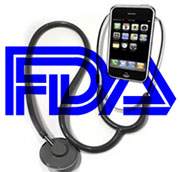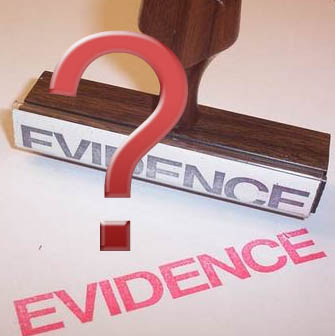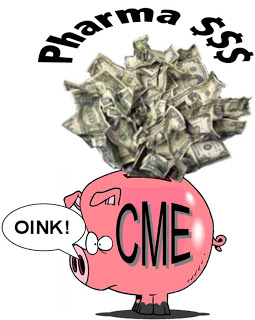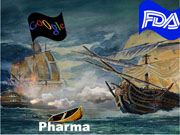Vol. 10, Issue No. 9: 18 MAY 2011 – EXECUTIVE SUMMARY

SURVEY: Potential for Bias in Commercially Supported Continuing Medical Education
Physicians are required to earn Continuing Medical Education (CME) courses to earn credits and maintain their state licenses. Currently, approximately 50% of accredited CME expenses are paid by pharma/medical device companies (see Pharma Support for Accredited CME Continues to Decline). Many critics of company-supported CME believe this support leads to “bias;” meaning that information presented at company-supported CME events favors the perspective of the program supporter or predominantly includes clinical data favorable to products of the CME supporter. Please take 2 minutes to answer a few short questions relating to potential bias in continuing medical education (CME) programs supported by pharma/medical device companies and how to limit the need for industry funding of CME.
CONTENTS
(Click on titles to see a summary and find link to full text of each item)
- Pharma SmartPhone/Tablet Apps: Is There a Regulation for That?
- Challenges of Regulating Mobile Medical Apps
- FDA’s BadAd Program Lacks Credible Evidence
- eDetailing Technology & Birth of “Sales Cyborg”
- Physicians Are Concerned That Pharma Supported CME is Biased, But …
- FDA v. Google & Those 14 Infamous Warning Letters
Article Summaries
Pharma SmartPhone/Tablet Apps
Is There a Regulation for That?
 Pharmaceutical marketers have jumped on the mobile application bandwagon as more and more companies roll out health-related applications for smartphones and touchpads such as Apple’s iPhone and iPad.
Pharmaceutical marketers have jumped on the mobile application bandwagon as more and more companies roll out health-related applications for smartphones and touchpads such as Apple’s iPhone and iPad.
“So many different health apps are popping up,” said Joseph Kim, MD, MPH, VP of Medical Affairs and Technology at Medical Communications Media, Inc. “How do you as a consumer, or as a physician, know which ones are reliable or which are accurate?”
Not only don’t users know which health apps are reliable and accurate, neither does the FDA. Some pharma smartphone apps that are intended to be used as diagnostic aids for physicians may be classified as medical devices. Indeed, FDA is planning to release guidance for mobile medical applications in 2011.
This article discusses the regulatory and other issues associated with pharma developed or sponsored health apps and summarizes a discussion of the topic with Dr. Kim.
Topics include:
- Physician Smartphone Usage
- Physicians Prefer Reps with iPads
- Pharmacos Develop Apps for Docs
- When is an App a Medical Device?
- Recent FDA Letters
- Third-Party Apps & Pharma
- CASE STUDY: The Janssen Psoriasis iPhone App
- Challenges of Regulating Mobile Medical Apps
- Liability Versus Regulatory Issues
- Apps Without Borders
- Role of Physician Societies & Medical Schools
- Can Medical Apps Improve Patient Care?
Order and pay for this reprint now using your credit card…
ONLY $4.95Download PDF file immediately after paying:
Challenges of Regulating Mobile Medical Apps
Legal and Regulatory Issues You Should Know About
A conversation with Joseph Kim, MD, MPH, VP of Medical Affairs and Technology at Medical Communications Media, Inc., about the rapid development of mobile medical applications and the legal and regulatory issues that physicians, patients, and pharma developers/sponsors should be aware of.
Some Questions/Topics Discussed
- What are pharmaceutical companies doing to reach physicians and other health care professionals via mobile devices?
- What are some of the potential concerns associated with mobile apps for health care professionals and/or patients/consumers?
- What are some of the privacy and security issues and concerns that surround mobile health apps?
- What role will the FDA play in regulating mobile health apps?
Listen to the podcast: Click Here
FDA’s BadAd Program Lacks Credible Evidence FDA’s BadAd Program is “BadAss” Lately!
FDA’s BadAd Program is “BadAss” Lately!
A recent “BadAd” prompted FDA letter sent to Forest Laboratories, Inc. cited a sales representative’s statements as false or misleading based totally on “hearsay” evidence.
The only evidence FDA offered was a physician’s written complaint about ORAL statements made by the sales rep.
The complaint reads like charges made by a prosecutor at a criminal trial except there’s no trial. And there’s no credible evidence such as violative detail aids, brochures, etc!
Read more, including the letter here: Click Here eDetailing Technology & Birth of “Sales Cyborg” “You can’t eat the orange and throw the peel away – a man is not a piece of fruit,” says Willy Loman in Act 2 of Death of a Salesman. After reading an article in a recent issue of the Wall Street Journal, many pharma sales reps may be feeling like tossed peeled fruit.
“You can’t eat the orange and throw the peel away – a man is not a piece of fruit,” says Willy Loman in Act 2 of Death of a Salesman. After reading an article in a recent issue of the Wall Street Journal, many pharma sales reps may be feeling like tossed peeled fruit.
“Big pharmaceutical companies have found replacements for the army of sales representatives they’ve laid off in recent years: digital sales tools that seek to sell doctors on drugs without the intrusion of an office visit,” says the WSJ.
Some sales reps may morph into what could be called “sales cyborgs” who engage in remote live human conversations with physicians aided by technology.
For more, click here: Click Here Physicians Are Concerned That Pharma Supported CME is Biased, But … Talk about having your cake and eating it too! Commercial funding of continuing medical education (CME) and the potential for bias appear to concern many physicians, yet only a TINY MINORITY (7%) are willing to pay registration fees to eliminate or offset commercial funding sources, according to a report in the May 9 issue of Archives of Internal Medicine, one of the JAMA/Archives journals.
Talk about having your cake and eating it too! Commercial funding of continuing medical education (CME) and the potential for bias appear to concern many physicians, yet only a TINY MINORITY (7%) are willing to pay registration fees to eliminate or offset commercial funding sources, according to a report in the May 9 issue of Archives of Internal Medicine, one of the JAMA/Archives journals.
The authors surveyed attendees at live CME courses delivered by the International AIDS Society–USA (IAS-USA), a nonprofit organization that pools the support it receives from industry so that no one company funds any particular program. In total, 770 attendees (a 57% response rate) completed the 22-item survey, which focused on beliefs about commercial funding and potential for bias, willingness to offset the cost of commercial support, knowledge about the costs of producing CME programs, and demographic information.
Find more results of the survey here: Click Here FDA v. Google & Those 14 Infamous Warning Letters Ready for a good conspiracy theory?
Ready for a good conspiracy theory?
FDA’s Infamous 14 Warning Letters Regarding Search Ads were a Ploy to Force Google into a $500M DOJ Settlement of a Case Involving Illegal Online Pharmacy Ads.
FDA’s warning letters may have been a “shot across Google’s bow,” intended to force Google to halt its acceptance of ads from “illegal” online pharmacies.
Read the full conspiracy theory here: Click Here




![6 Digital Tools at the Center of Healthcare Digitalization [INFOGRAPHIC]](http://ec2-54-175-84-28.compute-1.amazonaws.com/pharma-mkting.com/wp-content/uploads/2021/04/6DigitalTools_600px-218x150.jpg)




![6 Digital Tools at the Center of Healthcare Digitalization [INFOGRAPHIC]](http://ec2-54-175-84-28.compute-1.amazonaws.com/pharma-mkting.com/wp-content/uploads/2021/04/6DigitalTools_600px-100x70.jpg)




